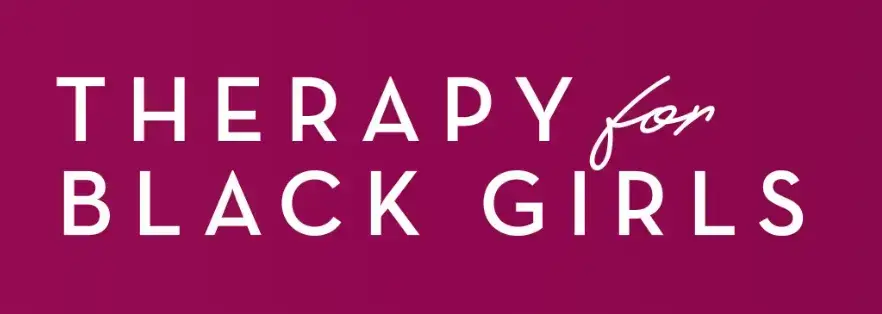Enhancing Trauma Therapy Through
Ketamine therapy Supports
It can be a difficult process for clients to find trauma therapy services that work for them. Ketamine may be a helpful alternative mental health treatment for supports in trauma therapy, especially for individuals who have had little t no success with traditional therapy.
Trauma Therapy that uses Ketamine, a medication primarily known for its use in anesthesia, has emerged as a promising tool in mental health. Recent studies have explored the potential of Ketamine-Assisted Therapy in unlocking healing pathways for individuals suffering from trauma[^1^][^2^]. Though traditional trauma therapy has been helpful to many, and remain to be a viable resource and treatment, ketamine therapy is proving its efficacy, safety and reliability as a treatment support for PTSD, anxiety, depression and other mental health challenges. Trauma Therapy must be decided upon in a collaborative approach between clients and their therapists to ensure safety and efficacy.
How Trauma Therapy & Ketamine Therapy Align
After clients receive medical clearance and prescription for Ketamine Lozenges, the client will self-administer the Ketamine in a safe and comfortable space in their home. It acts a a dissociative agent, allowing patients to explore traumatic memories without the typical emotional response. This creates a therapeutic window for addressing and processing trauma. Research has shown that repeated Ketamine significantly reduce chronic PTSD symptoms[^3^].
Impact of Ketamine on the Brain
Ketamine’s impact on the brain is multifaceted. It affects various neurotransmitters, including glutamate, leading to altered neural connectivity. This can result in a temporary dissociative state, providing a unique opportunity for therapeutic intervention. The brain’s reaction to Ketamine is believed to facilitate the rewiring of neural pathways, aiding in the healing of trauma-related disorders.
A recent study conducted by researchers at Penn Medicine has provided insights into how Ketamine acts as a “switch” in the brain[^4^]:
- Targeting Specific Neurons: Ketamine temporarily silences a set of neurons called “GABAergic interneurons” in the brain region known as the “habenula.”
- Increasing Serotonin Levels: The silencing effect leads to a rapid increase in serotonin levels, contributing to Ketamine’s antidepressant effects.
- Switching Off Negative Signals: The habenula is linked to negative emotions and stress. Ketamine’s action on the GABAergic interneurons effectively “switches off” these negative signals.
- Potential for Targeted Trauma Therapy: Understanding this mechanism may pave the way for more targeted and effective treatments for mental health disorders, including depression. This discovery adds to the growing body of knowledge about the neurological effects of Ketamine and its potential therapeutic applications
What Clients Can Expect during Trauma therapy
& Ketamine Assisted Psychotherapy
Clients who opt for Ketamine while undergoing trauma therapy can expect a series of sessions, often beginning with a consultation to assess suitability. The treatment includes:
- Medical Clearance: Through Journey Clinical physician
- Treatment Sessions: Administering Ketamine under professional supervision.
- Preparation: Understanding the process and setting intentions.
- Integration: Reflecting on the experience and integrating insights into daily life.
Our process at Mind by Design provides a detailed overview of what to expect.
Meet your Ketamine Therapist, Rebecca Sidoti, and learn more about our safety measures.

Looking for Traditional Trauma Therapy?
Feel free to contact us for more information or to schedule a session.
FAQ's about KAP
Could anyone benefit from Ketamine Assisted Psychotherapy (KAP)?
KAP has shown promise for individuals with treatment-resistant depression and certain anxiety disorders. However, its efficacy can vary from person to person.
What does Ketamine Assisted Psychotherapy help treat?
Ketamine has shown promise in treating various mental health conditions, including PTSD, Anxiety, Depression, Phobias and OCD. As Ketamine therapy providers, we offer this service to help clients break cycles of thinking traps that lead to compulsive behaviors.
Is Ketamine Assisted Psychotherapy the same as ketamine infusions?
KAP is a therapeutic approach that combines the use of ketamine with psychotherapy. Our Process of providing ketamine assisted psychotherapy is different from ketamine infusions, which are typically administered without the accompanying psychotherapy. Our partnership with Journey Clinical provides patients with lozenges for self-administering their Ketamine dose prescribed by the Journey Clinical provider.
How does ketamine work in the brain?
Ketamine works by blocking NMDA receptors in the brain, which can lead to an increase in the release of certain neurotransmitters. This can result in rapid antidepressant effects
Is ketamine addictive?
While ketamine has the potential for misuse, when used in a controlled medical setting for therapeutic purposes, the risk of addiction is considered low according to medical researchers
How many ketamine treatment sessions do clients need for KAP?
The number of sessions can vary based on individual needs and the specific protocol followed by the provider. You will see in “Our Process” that generally 2-3 sessions are held prior to a dosing session, and then integration sessions are held after a dosing session. Depending on your treatment plan, there may be more or less number of sessions
Do I need to take off work for KAP treatment? And if so, how long should I plan for?
It’s recommended to take some time off work after a KAP session to process the experience and ensure safety, especially if any side effects are experienced. Clients are provided with safety measures and consents which stipulate that clients should not drive after a dosing session and should have a trusted person with them to drive if needed.
What medical conditions might disqualify someone from KAP?
Certain medical conditions, such as uncontrolled hypertension or a history of psychosis, might be contraindications for KAP. See Our “Safety Measures” page for more information about the precautions that the medical team adheres to, along with other safety measure sin place.
Do I need a referral from my doctor?
At Mind by Design, we do not require pre-approval to begin the process. We do require a medical clearance through our partnership with Journey Clinical Medical Staff to participate in a ketamine dosing session.
How often would KAP be needed?
The frequency of KAP sessions would depend on the individual’s response to treatment and the medical provider’s recommendations.
How does ketamine compare to other psychedelic medicines?
Ketamine is unique in its rapid antidepressant effects and mechanism of action. Other psychedelics, like psilocybin, have different mechanisms and therapeutic potentials.
References
- NCBI – Ketamine for PTSD
- Psychiatrist.com – Ketamine Plus Psychotherapy for PTSD
- Brain & Behavior Research Foundation – Repeated Ketamine Infusions
- Penn Medicine – A Peek of How Ketamine Acts as a Switch in the Brain











